2023 Quarterly Recap Q2
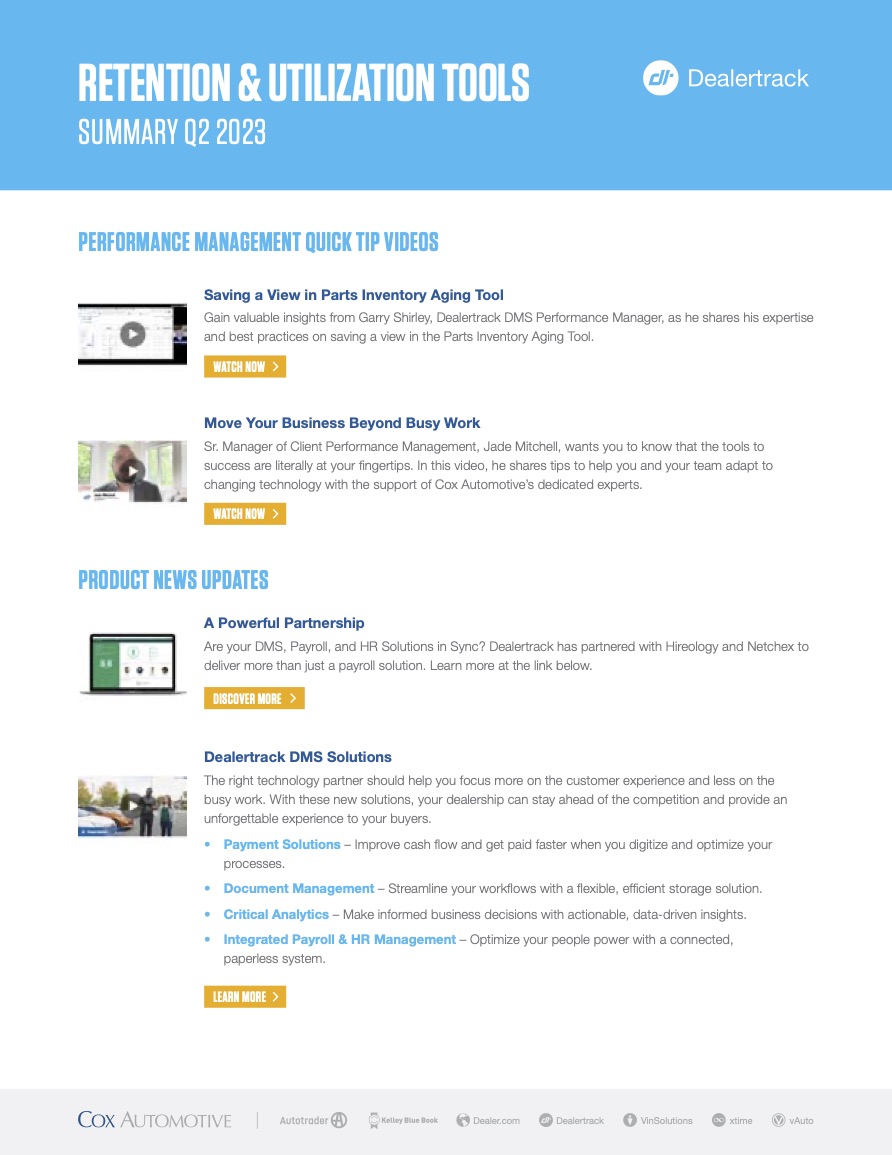

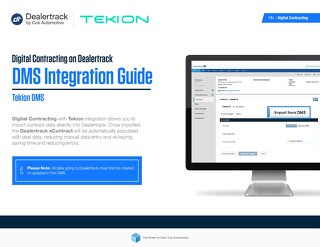
Follow our guide to learn how to import your deal into Digital Contracting from Tekion DMS
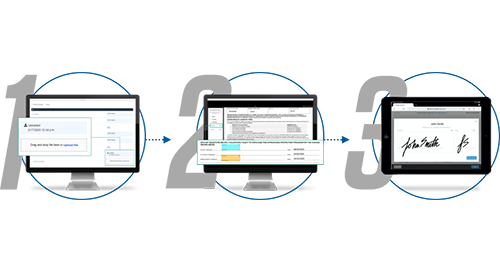
Give customers the flexibility to sign their deal in-store or remotely, all in one secure signing ceremony.
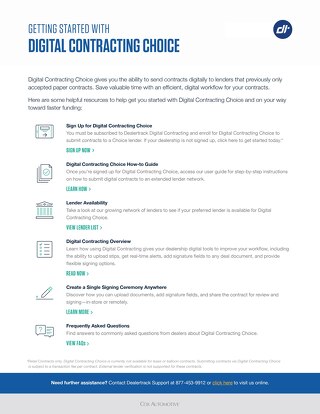
Download this list of resources to help get you started using Digital Contracting Choice for faster funding.
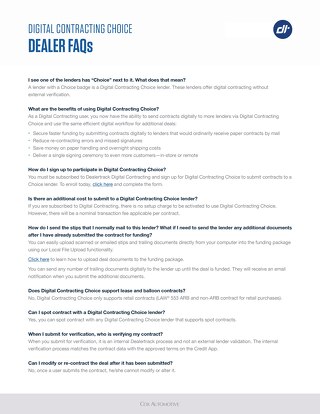
Find the answers to common questions that dealers have about Digital Contracting Choice.
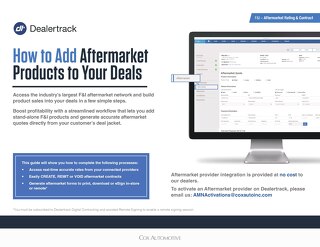
This updated Aftermarket Contract User Guide shows you how to access the industry’s largest F&I aftermarket network and how you can build product sales into deals in a few simple steps.
Boost profitability with a streamlined workflow that lets you add stand-alone F&I products and generate accurate aftermarket quotes directly from your customer’s deal jacket.
Aftermarket provider integration is provided at no cost to Dealertrack dealers.
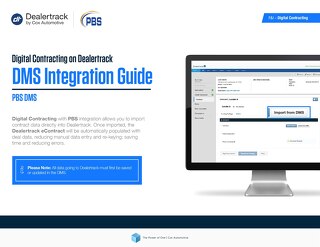
Follow our guide to learn how to import your deal into Digital Contracting from PBS Systems DMS.

Learn how to send digital contracts to an extended lender network with Digital Contracting Choice.